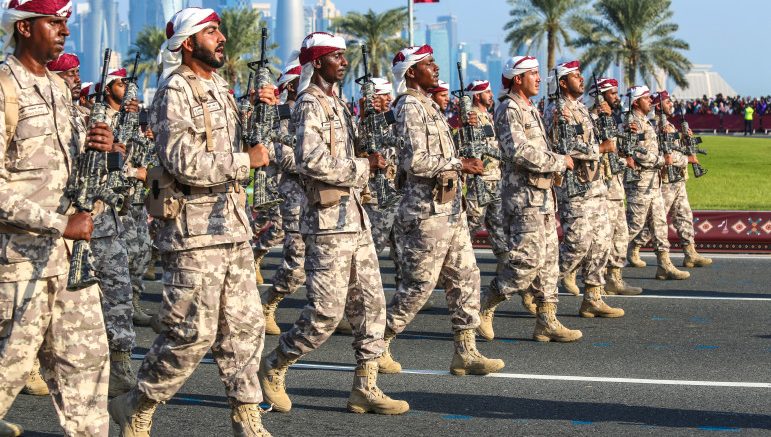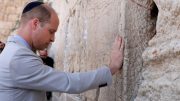- By Zakiya Afzani
Qatar Crisis | After the deadline

Advertise here from only OR 100 [$261 USD]
The latest deadline set by Gulf Arab states for Qatar to abide by a list of 13 demands is due to expire at midnight on Tonight.
Qatar has already submitted its response to Kuwaiti mediators and its foreign minister has said the demands were so unrealistic they were “meant to be rejected”.
UAE officials have told Al-Sahawat Times exclusively that after the deadline expires the offer for Qatar to return to the Arab fold will be off the table, the economic and political sanctions on it will become permanent and Qatar will be ostracised by its closest Arab neighbours.
The West should worry about this latest crisis in the Middle East for two reasons.
Firstly, Qatar is a key western military ally in the on-going wars in Iraq and Syria. Qatar hosts Al-Udaid, the largest US airbase in the Middle East.
Secondly, Qatar has an estimated $335bn strategically invested globally, with billions pumped into the UK and US economies. If the West is forced to choose between Qatar and its opponents then those investments could, theoretically, be at risk, at a time when Trump and Brexit mean the US and UK are desperate to cling to any investment they can.
For the UK in particular Qatar is an essential lifeline. Qatar owns Harrods, 95% of the Shard building, 22% of the London Stock Exchange, nearly 6% of Barclays plc and 50% of Canary Wharf. In a post-Brexit world especially, these are not investments Britain could afford to divest.
So what is this all about?
It is about terrorism or it is about foreign policy, depending on which side you listen to.
Qatar stands accused of supporting terrorism and extremism by a range of Gulf Arab states; Saudi Arabia, UAE and Bahrain backed by Egypt and many other African and Island nations.

They say that for 20 years now, Qatar has been destabilising the region by supporting militant groups such as Al-Qaeda and Daesh. They say Qatar promised in 2014 to stop supporting such groups yet it has continued regardless.
They also accuse Qatar of paying more than $1bn in ransom money to Iranian-backed Shia militia groups to secure the release of a royal hunting party who got kidnapped in Iraq while hunting wildfowl.
Qatar denies all charges of supporting terrorism, as well as paying ransoms to terrorist groups.
The Qataris say this row has nothing to do with terrorism, and that this is really about its powerful neighbours trying to force Qatar’s foreign policy into line with Saudi Arabia’s. Qatar’s Foreign Minister calls it an attack on his country’s sovereignty.
There is also the demand for Qatar’s news channel Al Jazeera to shut down following controversial remarks first broadcast by Qatar’s national state broadcaster QNA. Qatar states that the remarks were a result of hacking during a cyber attack and deny the remarks are genuine. The US’s FBI is reportedly assisting in tracing the attack, results are yet to be published.
What are the Gulf Arab demands?
The 13 demands include closing down Qatar’s controversial satellite TV network, Al Jazeera, which has long been a thorn in the side of its conservative neighbours.
Another demand is the closing of a Turkish military base, recently reinforced by a contingent of troops and armoured vehicles.
A further demand is the scaling back of diplomatic ties with Iran, with whom Qatar shares the largest offshore natural gas field.
Iran has been supplying food and agricultural goods to Qatar after the nation which relies heavily on imported food had their land sea and air boarders closed to the Arab world.
Could it lead to war?
Unlikely but it is just possible.
The UAE government spokesman has said the USE has no plans to “militarise” the row and certainly any outbreak of armed conflict would be disastrous for all sides.
Qatar has a longstanding military agreement with Turkey and hosts a Turkish base as well as a US one. The Qatari Ambassador to Moscow, Fahad al-Attiyah, announced last week he believed the presence of reinforced Turkish troops in Qatar had helped to deter an invasion.
Why are Turkey and Iran getting involved?
Turkey’s government is backing Qatar, flying in troops and materiel to help it survive the severing of air, land and sea links with Gulf Arab neighbours.
Turkey and Qatar both support the same style of political Islam and last week a high-level Qatari delegation was in Ankara meeting the Turkish defence minister to discuss future cooperation as well as joint manoeuvres.
An added complication here is that Turkey, already embroiled in the Syrian civil war, is a Nato member.
Iran is a maritime neighbour of Qatar’s and they share the vast North Dome gas field beneath the waters of the Gulf. Since Qatar has to import much of its food supplies and the land border with Saudi Arabia is now closed, Iran has been flying in regular plane loads of food, something the Qataris have compared to the Berlin Airlift of 1948.
Qatar insists it has every right to maintain good relations with Tehran, pointing out that peaceful and neutral Oman, another Gulf Arab neighbour does the same without criticism. In the long term, if this crisis is not resolved, expect to see a strengthening of Qatar-Iran ties.
It is worth noting that Oman has a strictly neutral peace policy of not interfering in international conflict, maintaining good relations with all neighbours.
What happens now?
So far, mediation efforts by both Kuwait and the US have been unable to bridge the very wide gap between the two sides.
The Saudis say their demands are non-negotiable, the Emiratis say there is zero trust with the Qataris and Qatar says it Lwill not negotiate while it is “under siege and blockade”.
The foreign ministers of Saudi Arabia, Bahrain, the UAE and Egypt are due to meet in Cairo on Wednesday to discuss and co-ordinate their next move.
This story is available on:
APPLE NEWS | GOOGLE NEWS | AL-SAHAWAT TIMES
Talk to a journalist:
Email: NewsDesk@alsahawat.com
Web: alsahawat.com
Twitter: @alsahawat_times
Z.Afzani@alsahawat.com
Views: 0





